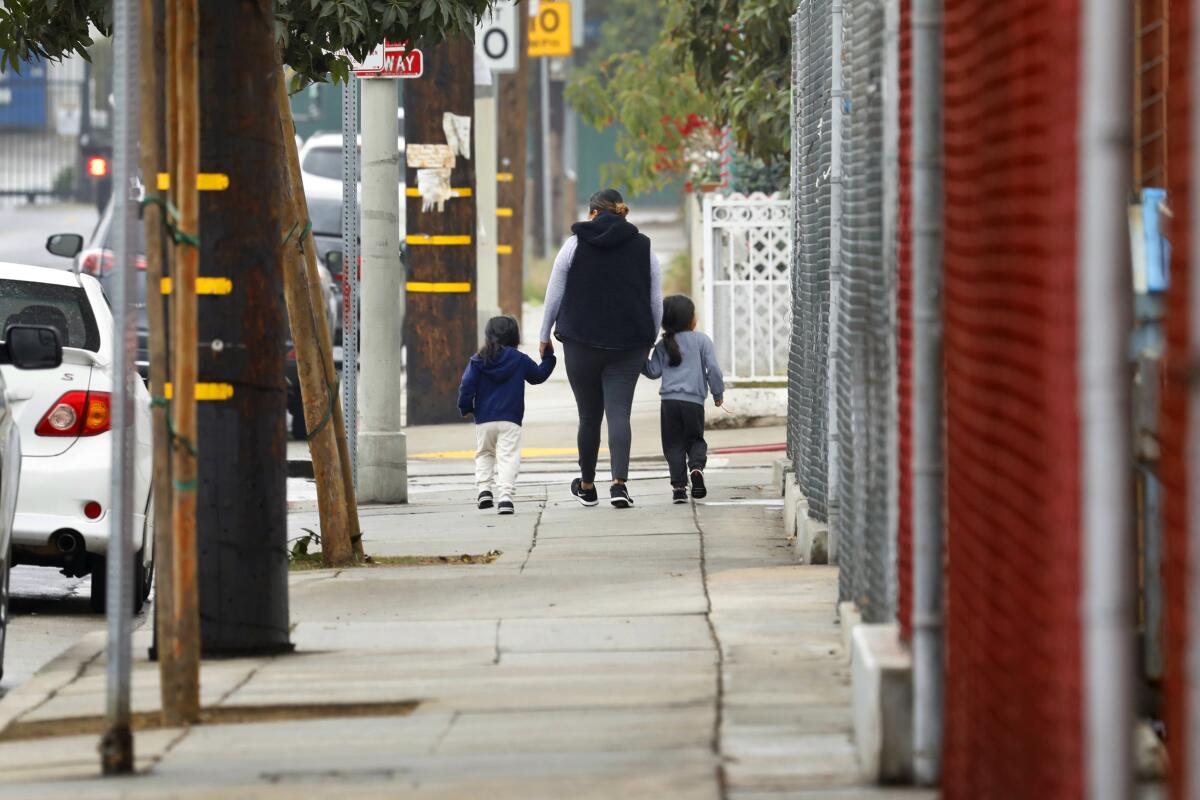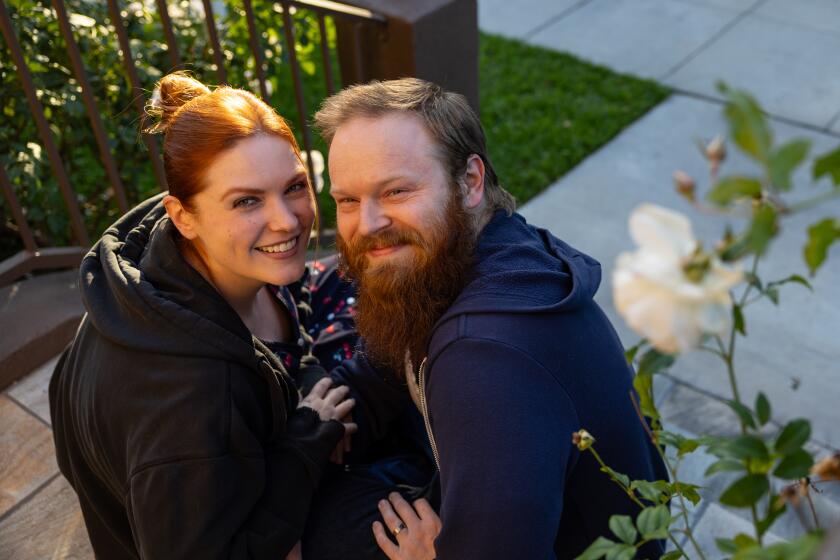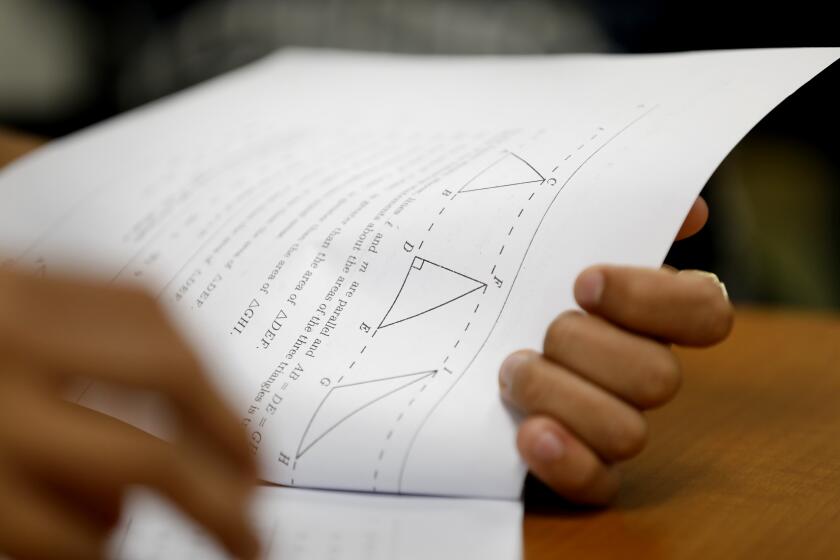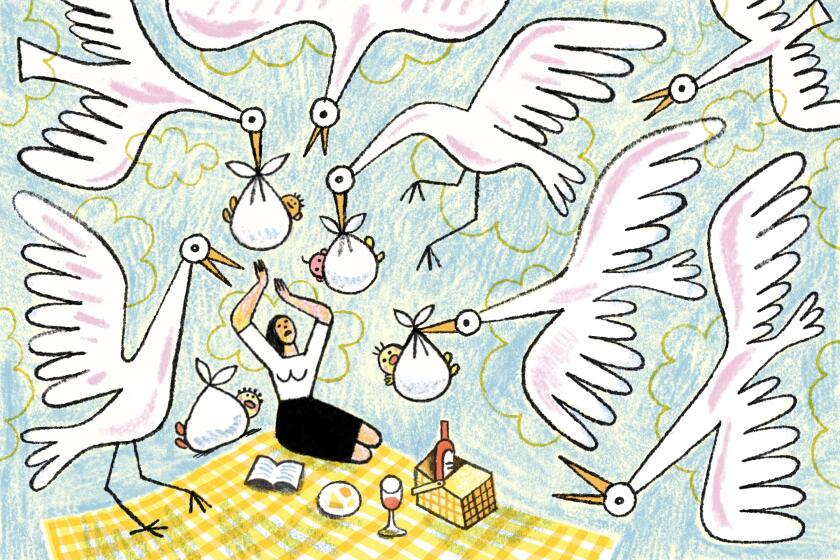Single mothers like me are easy scapegoats. But the case for marriage is a myth

- Share via
I am happier as a single mother than I ever was as a married one. Despite the fact that 47% of Americans think single mothers are bad for society, becoming one made my life and my children’s lives much better. This was made clear to me during the COVID-19 shutdown, when my kids were in third grade and kindergarten and Zoom school would often drive all three of us to tears. I was making near poverty-level wages, still trying to dig myself out of the debt of divorce and the cost of living.
At one point a friend texted me to ask how things were going. “I can’t imagine doing this pandemic as a single mother,” she said.
I took a breath and looked around my house. The light was pouring in through the windows, my cat was asleep on my lap. I was working hard and exhausted and afraid. But I was also so happy because for the first time in my life, I had the space to do the work I loved.
Birth rates have been trending downward in the U.S. for several decades and dropped precipitously during the pandemic. A key reason is the high cost of raising kids.
Court-mandated 50/50 custody meant my ex was doing his share of the online schooling and child rearing. My friend’s husband had been ignoring their kids to focus on his sourdough starter project. By the next year, she too was a single mother.
Single mothers have been blamed for everything including crime rates, school shootings and poverty. Alone and without a man, they are the specter of our cultural anxiety. People wring their hands and wonder who their sons will look up to without husbands around. As if sons can’t love and admire their mothers and see them as models for humanity.
Single mothers are more likely than married women to be poor and to face the pressures of the wage gap, and the lack of affordable child care and healthcare in the U.S. But single mothers themselves are not the cause of these deficiencies; we are merely a byproduct.
Although I chose to be a single mother, our society often doesn’t acknowledge that many single parents were forced into that situation due to issues such as abusive partners, incarceration and lack of reproductive rights. Single mothers are easy scapegoats for problems they didn’t create. We are shoved into poverty through systemic problems and then blamed for it.
Abcarian: Is your kid getting bad grades in math? I found a simple, questionable tactic that works
Parenting experts think paying a child for good grades is counterproductive, even if it works in the short run.
In “The Blueprint to Save America,” the Republican Study Committee’s fiscal report from June 2022, the group repeatedly emphasizes that marriage and family should be the focus of government spending instead of the social safety net. The report argues that it’s being a single parent (specifically a single mother, as they never mention single fathers) that tends to lead to poverty. The solution? Force people into marriage in the name of fiscal responsibility. This follows a pattern: The Moynihan Report from 1965 and George W. Bush’s Healthy Marriage Initiative also pushed for women and mothers to enter into marriages, rather than advocating for funding a social safety net.
But often walking out of single motherhood into marriage is like walking from one cage into a slightly bigger one. Reports smearing single mothers are ubiquitous, but we rarely consider that marriage itself can be a form of entrapment. For example, husbands add seven hours of domestic labor per week for their wives, while a wife reduces her husband’s labor by an hour a week. Additionally, almost 20% of American marriages involve some form of physical violence, with emotional abuse even more prevalent. Women do more child-rearing and more adjusting of their careers to accommodate family and domestic partnership. And there is a lot of evidence that supports the idea that divorced women are happier. Not to mention that single mothers have more leisure time and get more sleep than their married counterparts.
The pressure to procreate comes from so many directions I’m considering pitching a “Walking Dead” spinoff where the child free are the living and everyone else are zombies trying to turn us.
I am not surprised that single mothers are seen as a negative for society. Free women are destabilizing. Their existence, their radical happiness upsets our cultural ideas of what love and family ought to look like. I am glad it does.
As a single mother, I’ve been forced to build a new kind of life for myself. I own my own house and I’ve filled it with pets, books and friends. I do less housework than I did when I was married. I realize part of this is the privilege of being able to find work that pays my mortgage and puts food on the table. But part of it is the equality I gained through 50/50 custody, which gave me time to work — something I never had when I was carrying the bulk of the emotional and physical labor during my marriage.
Experiences of single motherhood are vast and diverse. When I was broke and struggling in the early days of single motherhood, I would remind myself that I’d been poor before. But what I had never been was free. And in 2024, that feels radical.
Lyz Lenz is a mother, journalist and author. Her new book, “This American Ex-Wife,” will be published Tuesday.
More to Read
A cure for the common opinion
Get thought-provoking perspectives with our weekly newsletter.
You may occasionally receive promotional content from the Los Angeles Times.












